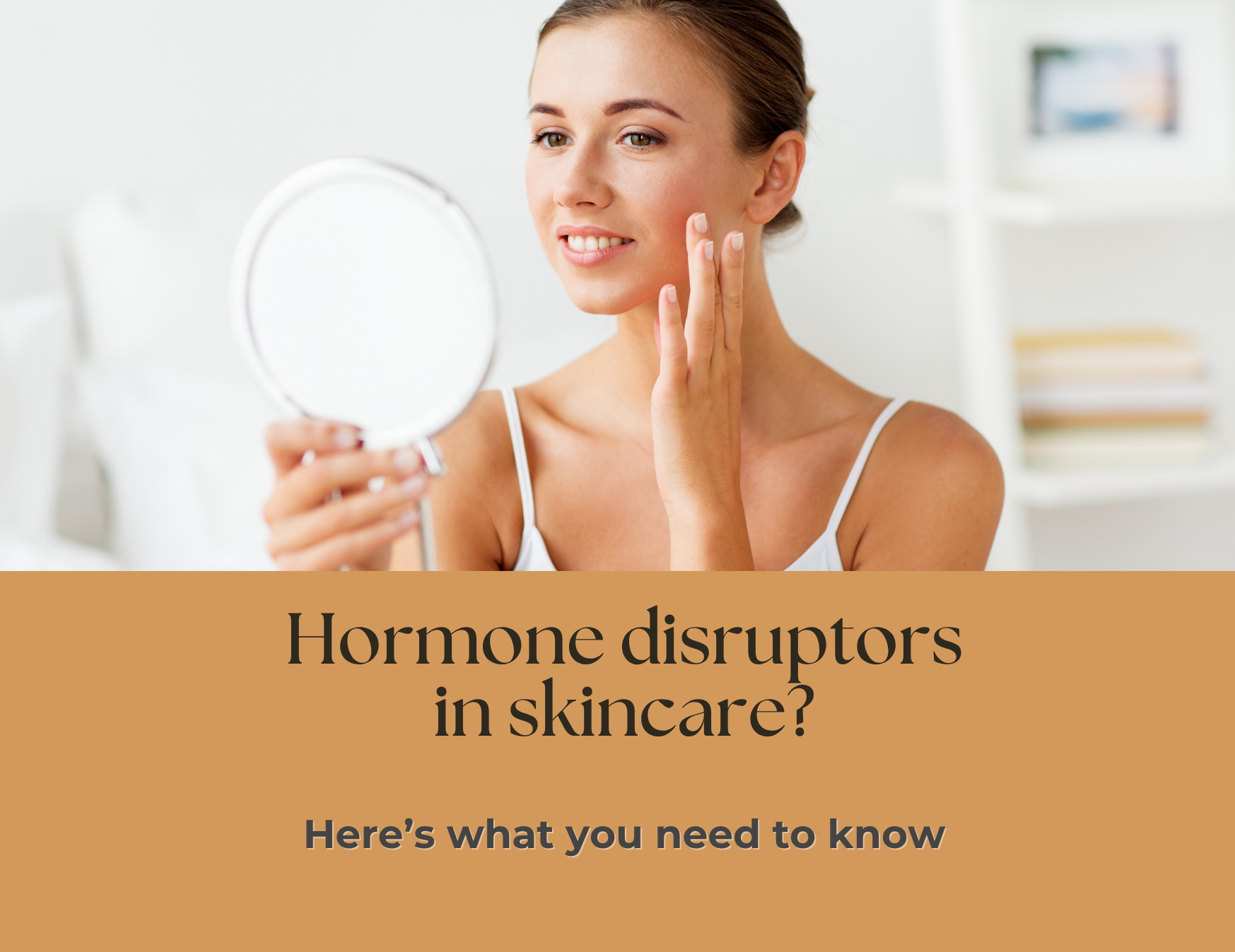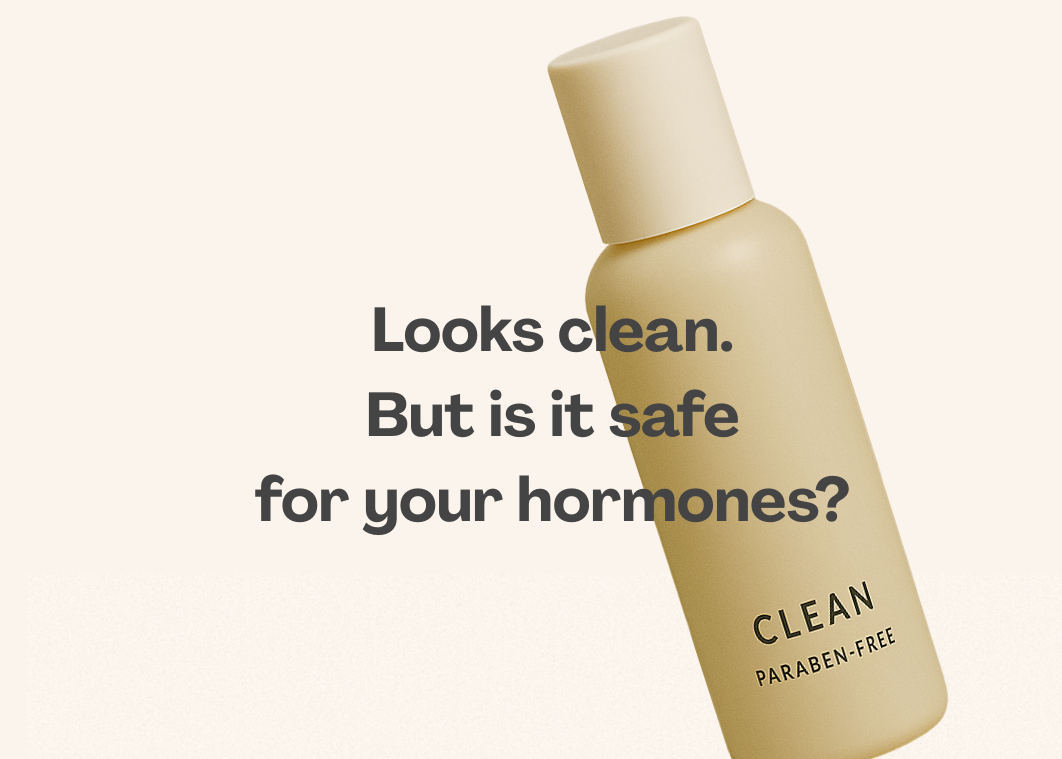What Are Hormone Disruptors in Skincare—and How to Avoid Them

We often hear about parabens and phthalates, but hormone disruptors go beyond just a few well-known ingredients. They can hide behind labels like "fragrance," lurk in natural essential oils, and even show up in plastic packaging. And while the term sounds scientific, hormone disruptors are more common in skincare than most people realize.
If you’ve ever wondered why your skin still reacts even after switching to "clean" products, this post is for you.
What Are Hormone Disruptors?
Hormone disruptors (also called endocrine disruptors) are substances that interfere with your body’s hormonal system. They may:
-
Mimic hormones like estrogen
-
Block the body’s natural hormone signals
-
Alter hormone production or breakdown
Your endocrine system controls everything from energy levels to skin clarity, menstrual cycles, mood, and metabolism. So when something disrupts it—even subtly over time—the effects can ripple through your body.
Why Skincare Is a Source of Exposure
Your skin isn’t just a barrier—it’s a gateway. While not everything is absorbed, many compounds in skincare products do penetrate the skin and enter circulation. Add in frequent use (often twice daily) and multiple product layers, and the exposure can build up.
Some of the most common hormone disruptors in skincare include:
1. Fragrance / Parfume
This is one of the biggest culprits. The term "fragrance" on a label can hide dozens of undisclosed chemicals—some of which may mimic estrogen or disrupt thyroid function. Even "natural fragrance" or "botanical parfum" isn't necessarily safe.
2. Essential Oils (in high concentrations)
Natural doesn't always mean safe. Certain essential oils (like lavender, tea tree, and clary sage) have been shown to affect hormone activity in specific doses. The key is dilution, sourcing, and usage frequency—most brands don’t disclose any of this.
3. Preservatives like Phenoxyethanol
Used as a "clean" alternative to parabens, phenoxyethanol is still a synthetic compound. While it may be safer than formaldehyde-releasers, it's still associated with skin irritation and potential developmental concerns with repeated exposure.
4. BHA and BHT
These synthetic antioxidants are used to extend shelf life, but they've also been linked to hormone disruption and immune interference in some studies.
5. Plastic Packaging Contamination
Even if your product is clean, if it's stored in plastic (especially non-BPA-free), phthalates or bisphenols can leach into the formula and end up on your skin.
Signs Your Skin (or Body) Might Be Reacting to Hormone Disruptors
Because hormone disruptors work subtly over time, it's not always obvious. But here are some signs to look for:
-
Cyclical breakouts that follow your menstrual cycle
-
Worsening PMS or irregular cycles
-
New skin sensitivity, redness, or inflammation
-
Fatigue, brain fog, or mood swings that correlate with topical product use
So What Makes Skincare Hormone-Safe?
Hormone-safe skincare isn’t about fear—it’s about informed, intentional choices. Here’s what to look for:
-
Full ingredient disclosure. No hidden "fragrance blends."
-
Low-dose essential oils only when needed—and in well-researched dilutions.
-
No known or suspected endocrine disruptors. This includes parabens, phthalates, and phenoxyethanol.
-
Safe, inert packaging. Glass or BPA-free containers help prevent ingredient contamination.
At Miss Organics, we take it one step further. Our Purity Standard™ ensures every ingredient is:
-
Disclosed
-
Non-disruptive
-
Cold-processed to preserve its integrity
-
Gentle enough for sensitive systems and hormonal phases
Why It Matters
Hormone-safe skincare isn’t just for people with known conditions. It’s for anyone who wants to:
-
Reduce toxic load
-
Support their skin through hormonal changes
-
Feel empowered by what they put on their body for optimum health
And because hormonal balance is connected to everything from fertility to skin clarity and mental wellbeing, choosing better skincare is one small but powerful shift.
Final Thoughts: Skincare That Supports You
Choosing skincare should feel good—not confusing or risky. At Miss Organics, our mission is to create products that support your health, not just your skin.
You don’t have to compromise between effective and safe. You can have both.



